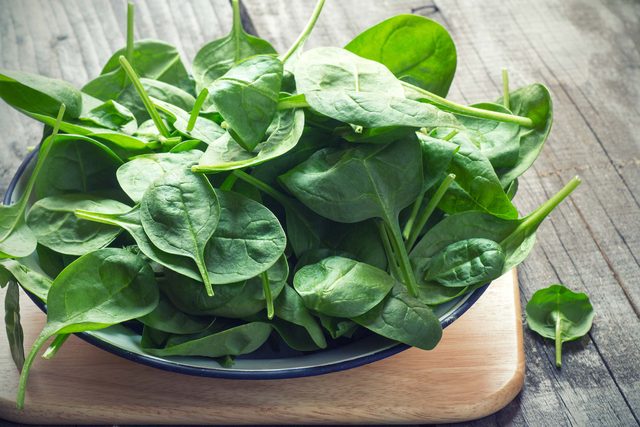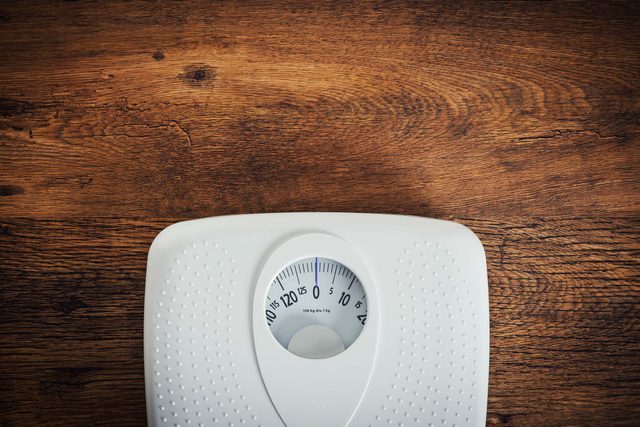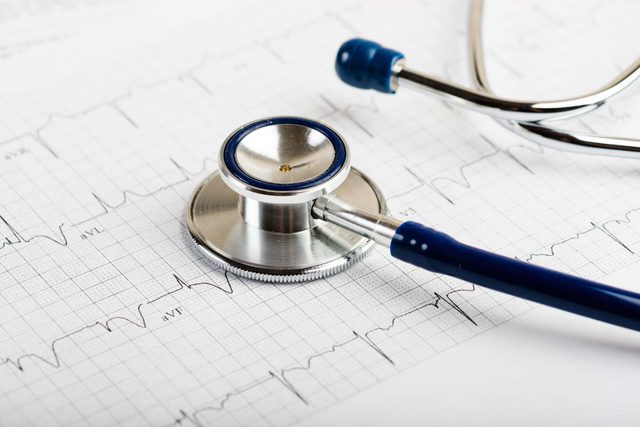
You could become deficient in vitamins and minerals
Fruits and vegetables contain some of the most vital nutrients for our health. Canada’s Food Guide recommends adults have seven to 10 servings per day, but according to Heart & Stroke Foundation, almost 60% of adults eat fewer than five servings of fruits and vegetables per day. So what can happen if you don’t get enough? Eating too few fruits and veggies can result in nutrient deficiencies. According to Laura Moore, a registered dietitian at the University of Texas Health Science Center at Houston School of Public Health, many deficiencies can have unpleasant side effects. Although you could get many nutrients from other foods, fruits and veggies contain high concentrations and are therefore great sources of them. Here’s how to determine if you’re nutrient deficient.

You could develop digestive problems
Without fruits and veggies, you’re more prone to digestive ailments such as constipation, hemorrhoids and diverticulosis. “Fruits and vegetables contain cellulose, which increases stool weight, eases passage, and reduces transit time,” Moore explains. In addition, they contain fibre, which Moore says “helps to alleviate or prevent constipation, stimulates the GI tract muscles so they retain their strength and resist bulging out into pouches called diverticula, and reduces pressure on the lower bowel, making it less likely for rectal veins to swell [which causes hemorrhoids].” A study from Harvard Medical School showed that a diet high in dietary fibre, which fruits and veggies provide, reduces the risk for diverticular disease. (Find out if you’re eating enough fibre.)

Your risk of cancer increases
According to the American Institute for Cancer Research (AICR), no one food can protect you against cancer—but a diet filled with plant-based foods can help lower your cancer risk. “Antioxidants such as vitamin E, vitamin C, and carotenoids may reduce cancer risks by protecting healthy cells from free radicals,” says Moore. “Carotenoids—pigments including beta-carotene, which can be found in spinach, other dark leafy greens, deep orange fruits, sweet potatoes, squash and carrots—may protect against cellular damage and have been associated with lower rates of cancer.” In addition, consuming too much fat has been linked to cancer; so replacing those unhealthy foods with a diet high in fruits and veggies will lower your risk. (Garlic can also help reduce the risk of cancer.)

You may gain weight
If you’re not eating fruits and veggies, you’re probably eating foods with a higher fat content and caloric density. A study led by researchers at the Albert Einstein College of Medicine showed that overweight and obese portions of the U.S. adult population ate fewer servings of fruits and vegetables than normal-weight groups. “Most often the diet containing foods that are high in energy density—meaning more calories per gram—leads to overeating and weight gain,” Moore says. “Fruits and vegetables are low in calories and low in energy density. Therefore, one can eat more and feel more satisfied with fewer calories.”

You’re more likely to develop diabetes
Because weight gain is associated with diabetes, you increase your risk for diabetes when you eat high-density foods instead of fruits and vegetables. “As being overweight is the most important risk factor for type 2 diabetes mellitus, studies have shown that an increased consumption of vegetables and fruit might indirectly reduce the incidence of it,” Moore says. One such study from Tulane University found that consumption of green leafy vegetables and fruit was associated with a lower diabetes risk. In addition, if you already have diabetes, Moore says not eating fruits and veggies can make it worse. “For a diabetic, consuming carbohydrates such as breads, rice, pasta, and or processed foods can cause blood sugar to soar out of control,” she says. “Replacing these foods with low-carbohydrate vegetables like dark leafy greens, broccoli, cauliflower, tomatoes, eggplant and whole fruits can help regulate glucose levels.” These are Canada’s healthiest fruits and veggies.

Your blood pressure may rise
A diet high in sodium and low in fruits and vegetables will contribute to higher blood pressure. The Dietary Approaches to Stop Hypertension (DASH) study proved that a diet rich in fruits and veggies can reduce blood pressure—and in people who already had hypertension, the diet reduced their blood pressure as much as medications can. “Following a diet high in fruits and vegetables—rich in nutrients such as potassium, calcium and magnesium and low in sodium—helps reduce the sodium in your diet, thereby lowering blood pressure,” Moore says.

You have a greater risk for heart disease
In part because of the effect of lowering blood pressure, eating lots of fruits and vegetables can reduce your risk for heart disease and stroke. The large Harvard-based Nurses’ Health Study and Health Professionals Follow-Up Study showed that compared with those who ate less than 1.5 servings of fruits and vegetables a day, people who ate eight or more a day were 30 percent less likely to have had a heart attack or stroke. Also, “fruits and vegetables do not contain cholesterol; therefore, substituting fruits and vegetables for foods that contain dietary cholesterol may reduce the risk,” Moore says. Speaking of heart disease, here are things you probably don’t know about heart health.

You could be headed for depression
Researchers are just beginning to look into the connection between what we eat and our mental health. A large study out of Spain recently revealed that people with a diet high in fruits and vegetables experienced lower rates of developing depression. It’s not known yet exactly why fruits and veggies may have this protective effect on mental health, but Moore says deficiencies in nutrients such as pantothenic acid and vitamin B6 could possibly be the cause of depression in those who don’t consume enough of them.
Next, see how diet can affect your mental health.
